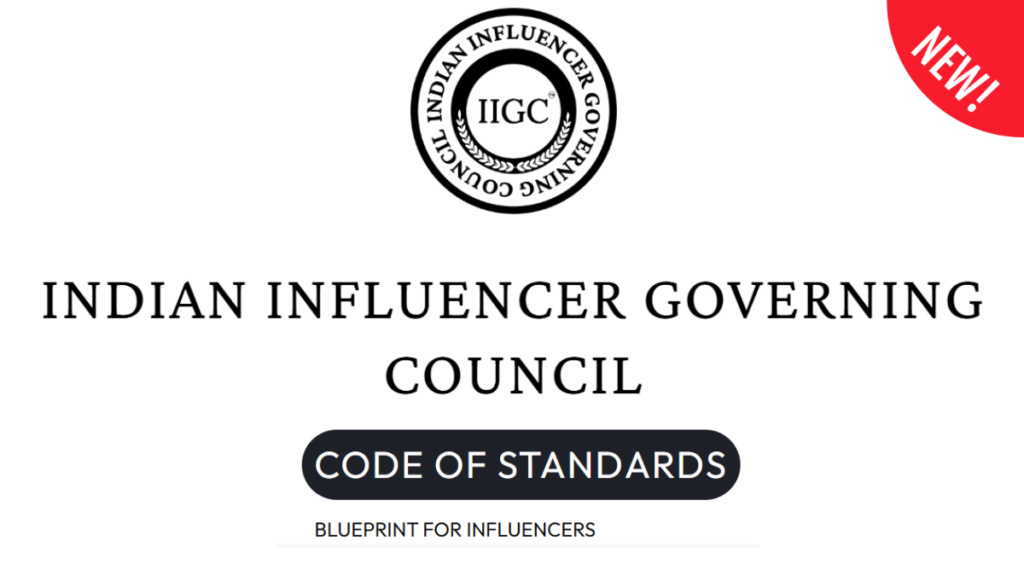Biz
IIGC Introduces New Rulebook for Influencer Content: From AI Ethics to Defluence
The Indian Influencer Governance Council unveiled 20 fresh content standards for influencers, covering everything from paid ads and AI influencers to content safety and brand deals.

The digital influencer world in India just got its first structured playbook, a code of standards. The Indian Influencer Governance Council (IIGC), a self-regulatory body for online creators, launched a detailed Code of Standards for influencer content earlier this month. This new rulebook has 20 key sections, guiding influencers on brand collaborations, content tone, AI ethics, child safety, and even financial transparency.
How Will Influencer Content Be Governed Now?
The idea is to ensure influencer content is responsible, transparent, and trustworthy. The new framework ensures authenticity in brand collaborations, responsible content creation, and consumer protection, fostering trust within the influencer marketing ecosystem.
Here’s a simple breakdown of what’s inside the new code:
Understanding Metrics the Right Way
Influencers are now expected to clearly understand and use terms like reach, impressions, and engagement. Buying likes and followers or using bots is not allowed. Promising specific numbers like conversions or sales is okay only if supported by real past data.
Marking Paid Partnerships Properly
Any material connection with a brand must be disclosed. This includes paid sponsorships, affiliate links, free products or barter deals. Hashtags like #Ad, #Sponsored, and #PaidPartnership are mandatory, says IIGC.
Introducing #Admiration
If influencers post about a product or service without being paid, just because they like it – they must still disclose it with the hashtag #Admiration. This helps keep things honest and clear for audiences.
AI Influencers Also Come Under The Code
Yes, even AI influencers must follow the same rules. They must carry a disclaimer that they are not real humans. Influencers must not create AI characters that resemble real people without consent. They must not use AI to manipulate users or specifically target minors emotionally.
Also Read: Bad Influence: What Piper Rockelle’s Story Warns Indian Families About Online Fame
Working with Brands the Right Way
Influencers should only promote what they truly believe in. Working with competing brands simultaneously is not allowed unless clearly stated in contracts. They must also adhere to deadlines, update clients regularly, and follow brand guidelines while remaining true to their content style.
Defluence: Calling Out Brands, But Responsibly
Defluence is the term for when influencers speak against brands or products. The code says criticism must be honest, fact-based, and not personal. Any conflict of interest must be clearly shared.
Clear Payment Practices
There are no more handshake deals. Every brand collaboration must have a written contract, scope of work, and proof of work. Delayed brand payments are discouraged, and influencers must not start work without confirmed payment terms.
Say No to Discrimination
Influencer content must be inclusive and respectful. No discriminatory jokes, portrayals, or language is allowed. Violations can lead to warnings, corrective action, or bans.
No Exploiting or Objectifying Anyone
Influencers must not create content that humiliates, objectifies, or sensationalises people, especially vulnerable groups. They must get consent before featuring anyone and avoid using trauma or emotional pain just to gain views.
Avoid Content That Shows or Encourages Violence
Graphic violence, hate speech, animal cruelty, and cyberbullying are all banned. Influencers should add trigger warnings when required and promote peaceful and respectful communication.
Sexual Content Should Be Responsible
As per the IIGC, Influencers can post content related to sex or nudity only if it’s educational, artistic, or health-related. They must not sexualise minors, non-consenting individuals, or use nudity just to gain views.
Keep Language and Tone Positive
No abusive, profane, or misleading language. Influencers must avoid promoting conspiracies and instead stick to constructive conversations.
Put Health & Safety First
Promoting unsafe health advice, dangerous stunts, or untested supplements is now off-limits. Influencers should consult experts and avoid spreading false health claims.
Ban on Alcohol and Gambling Ads
Advertising of alcohol or gambling is completely banned. No linking these with success, fun, or lifestyle. Platforms must also have age restrictions and visible warnings.
Authenticity in Product Promotion
Creators must have actually used and tested products before promoting them. False claims are not allowed. Any paid promotion must come with clear labels.
Content Safe for Children
Kids’ content must be positive, safe, and educational. It must not contain abusive language, dangerous acts, or junk food promotions. Influencers must get parental consent and protect children’s privacy when featuring them. They must clearly mark promotions in kids’ content using simple, easy-to-understand language.
Don’t Mislead in Finance Content
Influencers must avoid giving guaranteed returns, promoting get-rich-quick schemes, or offering financial advice without a license. They should be transparent about risks and only promote what they understand or have used.
Keep Green Claims Real
Promoting something as eco-friendly or natural? Influencers must provide proof or valid certification. Vague or false green claims are not allowed.
Handle Data Responsibly
Influencers must never share fake data, graphs, or statistics. They cannot share user data without consent, and any privacy claims must be true and verifiable.
Consumer Complaints Now Have a Place to Go
The IIGC has set up a consumer complaint forum to address any influencer-related issues. While the code provides a platform for complaints, there is no word yet on how enforcement will work.
IIGC’s new influencer content rules aim to make digital media safer, transparent and accountable. Whether you’re a budding content creator or a top-tier influencer, following these new guidelines will now be a key part of doing business online.


























